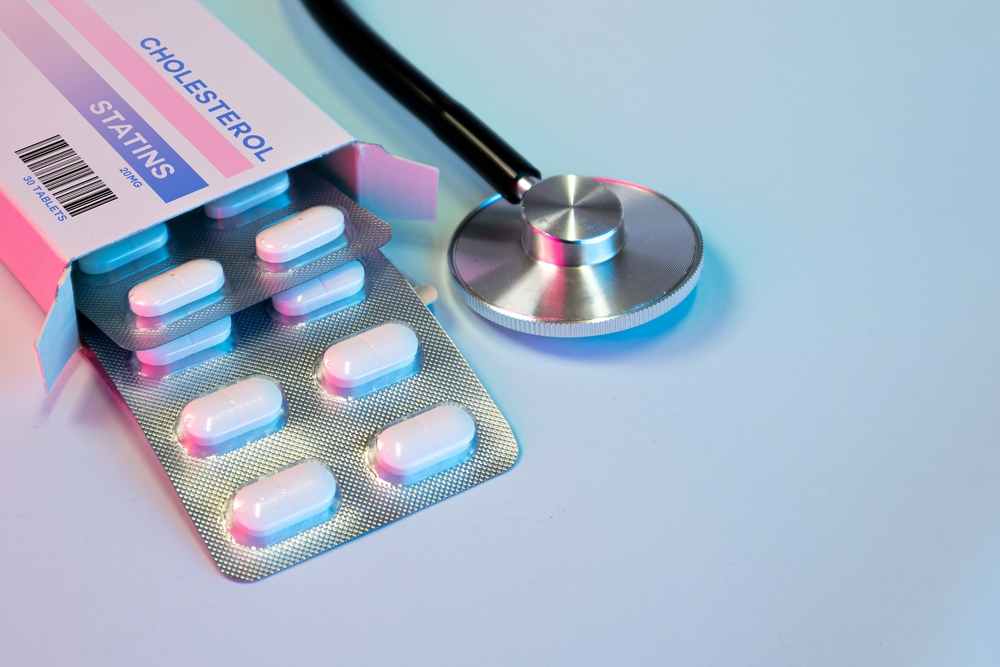When your doctor tells you that you have high cholesterol, they will likely recommend lifestyle changes like diet and exercise. But for many people, that’s not enough to reach a healthy level. This is where medication becomes a vital tool. If you’ve ever wondered, “How do medications work to manage cholesterol levels?“, you’re asking a crucial question about protecting your heart. Different drugs have unique ways of tackling high cholesterol, and understanding these mechanisms can help you see why your doctor might recommend a specific one as the best medicine for cholesterol control for you. Get a consultation with the best cardiologists in Brooklyn.
How Do Medications Work to Manage Cholesterol Levels? The Different Approaches
Your body gets cholesterol from two sources: it’s produced by your liver, and it’s absorbed from the food you eat. Cholesterol-lowering drugs are designed to interfere with one or both of these pathways. The goal is always to reduce the amount of LDL (“bad”) cholesterol, the type that can build up in arteries and lead to heart disease.
The Powerhouse: Blocking Cholesterol Production with Statins
Statins are the most commonly prescribed medication for high cholesterol, and for good reason. They are highly effective and have been studied extensively for decades.
How they work: Statins target the liver, which is the body’s main cholesterol factory. They work by blocking a specific enzyme called HMG-CoA reductase. This enzyme is a critical part of the assembly line for making cholesterol. By inhibiting this enzyme, statins effectively slow down your liver’s production of cholesterol.
This action triggers a helpful chain reaction. When your liver cells sense that they have less cholesterol inside them, they put more LDL receptors on their surfaces. These receptors act like magnets, pulling LDL cholesterol out of your bloodstream to be broken down. The result is a significant drop in your blood LDL levels.
The Absorption Blocker: Ezetimibe
While statins work on the supply your body produces, another drug targets the cholesterol you consume.
How it works: Ezetimibe works in your small intestine. It specifically blocks the absorption of cholesterol from the food you’ve eaten, preventing it from entering your bloodstream in the first place. Because it has a different mechanism of action, a cardiologist will often prescribe ezetimibe in combination with a statin. This two-pronged attack—reducing production and blocking absorption—can be very effective for people who need extra help lowering their LDL.
The Advanced Guard: PCSK9 Inhibitors
For individuals with very high cholesterol, often due to genetic factors, or for those who can’t tolerate statins, a newer class of injectable drugs called PCSK9 inhibitors offers a powerful solution. These are often considered the best medicine for cholesterol control in high-risk patients.
How they work: The mechanism is quite sophisticated. Your liver cells have LDL receptors on their surface to pull cholesterol from the blood. A protein called PCSK9 naturally destroys these receptors, which limits how much LDL cholesterol the liver can clear. PCSK9 inhibitors are antibodies that target and neutralize the PCSK9 protein. By taking PCSK9 out of commission, more LDL receptors remain on the liver’s surface, allowing it to remove much more LDL cholesterol from the blood. This can lead to dramatic reductions in LDL levels.
Other Important Players in Cholesterol Management
While statins, ezetimibe, and PCSK9 inhibitors are the main players for lowering LDL cholesterol, other drugs target different aspects of your lipid profile.
- Bempedoic Acid: This is another option for people who experience muscle-related side effects from statins. It also works in the liver to block cholesterol production, but uses a different pathway that is less likely to affect muscle tissue.
- Fibrates: These medications are primarily used to lower triglycerides, another type of fat in the blood that can contribute to artery plaque when levels are high. They also provide a modest boost to HDL (“good”) cholesterol.
- Omega-3 Fatty Acids: Prescription-strength omega-3s are also very effective at lowering high triglyceride levels.
Partnering with Your Doctor for the Right Solution
Understanding “how do medications work to manage cholesterol levels?” makes it clear that there is no one-size-fits-all answer. The best medication for you depends on your specific lipid profile, your overall risk for heart disease, and any other health conditions you may have.
This is why building a strong partnership with your healthcare provider is so important. A specialist at a cardiology clinic in Brooklyn can perform a comprehensive evaluation to determine the most effective and safest treatment plan for your needs. They will consider all the factors and explain why a particular drug or combination of drugs is the right choice for you.
Remember, medications are most effective when they are part of a broader heart-healthy lifestyle. Combining your prescribed treatment with a balanced diet, regular physical activity, and avoiding tobacco is the most powerful way to protect your heart. If you have high cholesterol, start a conversation with your doctor or a specialist at a cardiology clinic in Brooklyn to explore your options and take control of your cardiovascular health. For any cardiovascular problems, call us on +1 718 367 2555. The Cardiologists at Doral Health & Wellness consistently have outstanding patient satisfaction ratings. If you need help, register your information at https://yuz88hfiyh7.typeform.com/Doralintake. The professionals at Doral Health & Wellness Cardiology Brooklyn can improve your health and quality of life because of their vast training and experience. New Yorkers can get the greatest medical, surgical, and cardiovascular care at Doral Health & Wellness Brooklyn. Visit us at 1797 Pitkin Avenue, Brooklyn, NY 11212.






